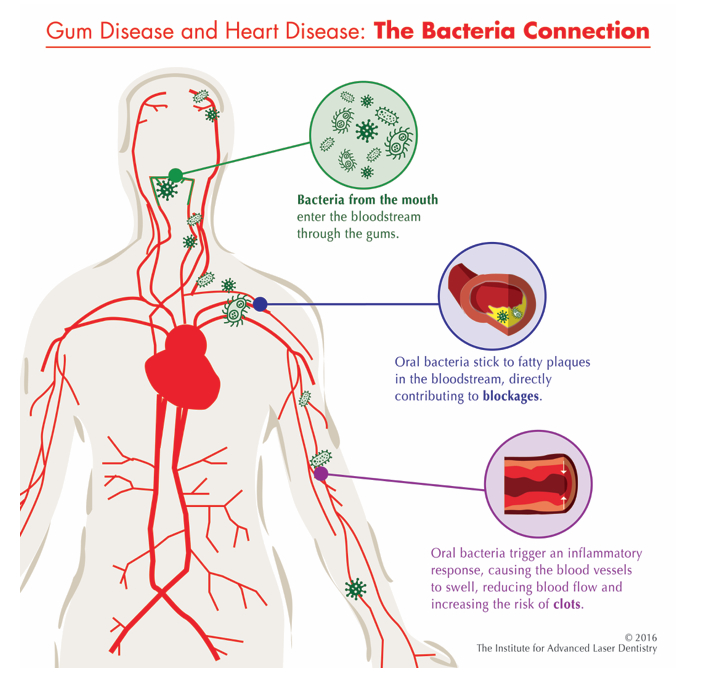Do You Want a Healthy Heart? Take Care of Your Gums!

Heart disease claims more lives every year in the United States than any other cause, approximately 610,000 per year (or one of every four deaths) to be precise. That’s an alarming number, and one that requires serious consideration for taking preventative measures. So how do you lessen your chances of developing heart disease? The Mayo Clinic suggests many healthy lifestyle adjustments to decrease risk, including the consumption of a heart-healthy diet (full of fresh fruits, vegetables and whole grains), cessation of smoking, regular exercise, stress management, getting plenty of quality sleep, and regular check-ups. But one thing that’s overlooked far too often in these lists of preventative measures is the need for proper oral care.
Studies have shown a significant connection between periodontal disease and the development of heart disease. According to www.dentistryiq.com, “Researchers have found that people with periodontal disease are almost twice as likely to have heart disease.” One theory behind this connection is that bacteria from gum disease enters the blood stream and becomes attached to fatty deposits in heart blood vessels, increasing the likelihood of blood clots, and thus heart attacks.
If you truly want to take good care of your heart, you cannot neglect your oral health. Just as the cessation of smoking or eating healthy foods can lower your risk of developing heart disease, good oral hygiene—brushing, flossing, and regular oral examinations—can also help keep it at bay. Watch for symptoms of gum disease and consult with your dentist right away if any of them develop. Your dentist will be able to recommend the best line of treatment depending on how far along the periodontal disease has become. In most cases, early treatment is very successful at taking care of gum disease and lowering the risk for development of further complications.
Symptoms of Periodontal Disease to Watch For:
- Red, swollen, bleeding, or painful gums
- Bad breath that doesn’t improve with brushing or rinsing
- Loose teeth or painful chewing
- Receding gums
To learn more about the connection between heart health and periodontal disease, visit https://www.rmtanaka.com
The office of Dr. Raymund Tanaka and Dr. Cynthia Leong serves patients in the Phoenix area of Arizona.
June 18, 2019
